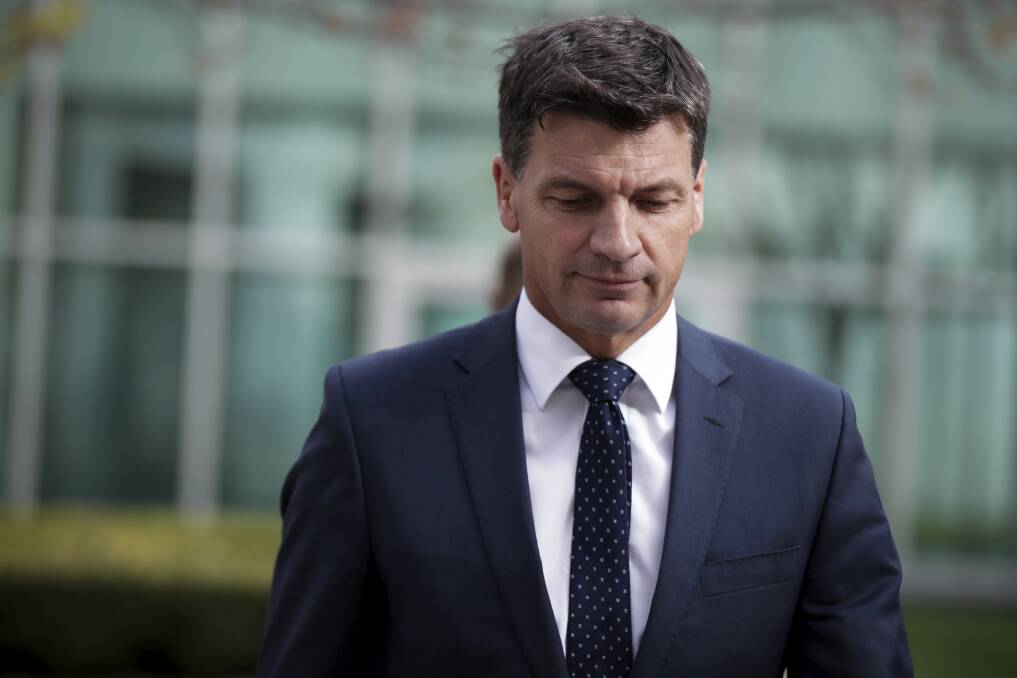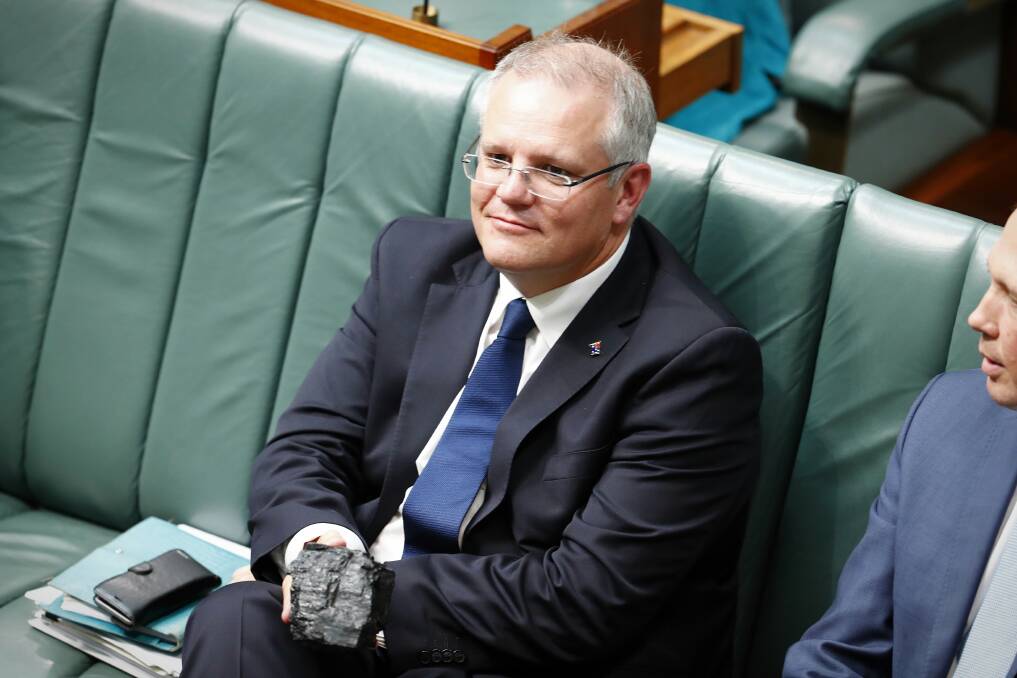There are three things to know about Angus Taylor. The first is, he's clever.
Subscribe now for unlimited access.
$0/
(min cost $0)
or signup to continue reading
This doesn't mean he's either brilliant or infallible, as we'll see shortly. It does mean, however, that you underestimate him at your peril.

He's come a long way for a boy from Nimmitabel. He was never going to be trapped there, of course - his family connections alone guaranteed that, however Taylor's made quite a bit out of his initial leg-up.
He won the economics medal at Sydney University by himself, and those same smarts got him a Rhodes Scholarship. Then partnership at McKinsey, boutique management consulting until, finally and unsurprisingly, politics.
So when, after 25 years, the irascible and improbable Alby Schultz finally stood down from one of the choicest of all conservative federal seats, Taylor made sure he was positioned perfectly to slip straight into the seat.
In 2013 he became member for Hume, that stretch of wealthy, prime farmland between Goulburn and Sydney. In 2016 he parleyed this success into a ministerial slot. This year the penultimate political prize: Cabinet.
But, far more problematically, the energy portfolio.
This is where the second important thing you need to know comes into play, because it's at odds with that first characteristic. Taylor's ideological. Perhaps unusually for a politician, he actually believes in policies that often aren't popular. He's also prepared to push them, even when other, simpler paths are available and this is creating a huge dilemma for him.
He needs to find a way to resolve this conflict between ideas he seemingly believes in and the politically sensible option. The question is, how far is he prepared to bend?
Taylor isn't on a one-man crusade as far as climate change is concerned, but it's difficult to explain exactly where our Energy Minister stands on this issue. Taylor claims not to be a climate sceptic, yet he's been a vocal opponent of some some renewable technologies (wind-power in particular) although less so others (hydro).
Perhaps here though, it's pertinent to note his grandfather was chief engineer on the Snowy Scheme and this is no guarantee he believes in the urgent need to act for environmental reasons. For the purposes of this column, his attitudes are complex. The problem is that, as Energy Minister, he needs to send out a very clear, firm signal.
Energy is a critical ingredient for our future and successful politics demands a clear, reliable and cheap path to sufficient energy generation be charted out clearly. Taylor's intellectual position, however, appears to have left him in a bind stemming from the victory of ideology over political pragmatism.
This is very different from Scott Morrison. He's always understood which side his bread was buttered on and that's why he's now Prime Minister.
Don't worry about China - it's military doesn't represent the existential danger that climate refugees could.
When moderate votes were needed for pre-selection, he was progressive. Then he reverted to brandishing coal in Parliament, which worked a treat keeping the old-guard happy. Later he was a Turnbull man until (quite suddenly, and on the morning he seized power) it turned out he wasn't.
Morrison has no problem being everything to everyone: that's why he won the election. Why bother carrying electoral baggage around?
Labor was busy saddling itself with completely unnecessary policies; changing dividend imputation, or promising to boost nurses wages while (apparently) keeping everyone else pegged. Is it surprising it didn't work out well?

So, just perhaps and maybe, energy policy might not be a real dilemma for Morrison. In the past he's shown the capacity to change his tune as required. A similar repositioning is required today.
It's not just that energy companies, state governments and a majority of people want leadership on this issue. This issue has bedevilled our politics since well before 2007, the "climate change election". Since that time (when the science was accepted by John Howard's Coalition government) nothing has suggested the underlying assumptions of the Intergovernmental Panel on Climate Change are in error. If anything the symptoms have become worse.
The critical issue, though, is strategic.
Leaked comments made by the Chief of the Defence Force only accentuate this critical point.
Changing weather conditions affect those least able to deal with them. This means individuals including, specifically, people living on the margins in our Asian/Pacific neighbourhood. They don't have the resources to deal with sudden changes to the environment.
They're far more likely to be pushed further to the margins and forced to flee their homes. This represents an increasingly dangerous threat, simply because there is no solution - absolutely no answer to dealing with an armada of small boats packed with people, headed our way.
This is the security challenge of the 21st century. Don't worry about China - it's military doesn't represent the existential danger that climate refugees could.
And this is the challenge for Taylor; the third thing we need to know about him. Can he put aside his intellectual objections and create a policy to deal with this pressing strategic issue? Failure is not an option.

